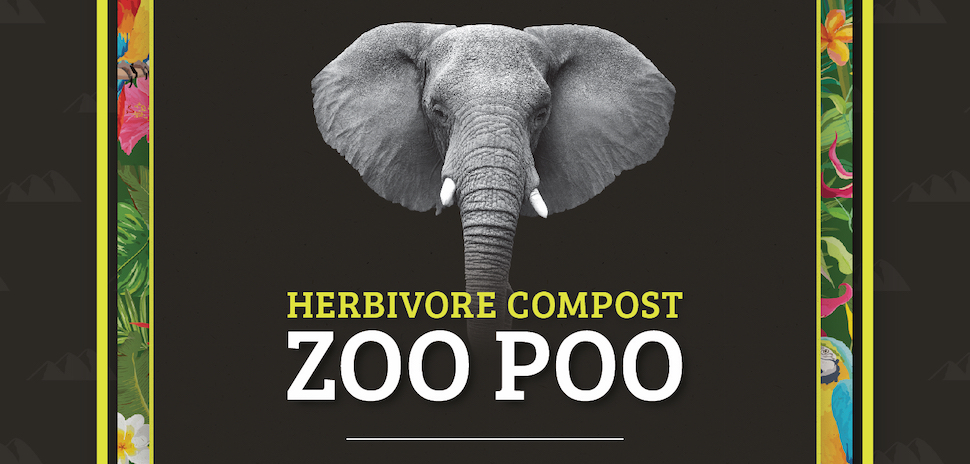The I-35 deck park by the Dallas Zoo is the neighborhood’s No. 1 best idea. But this story is about No. 2: What to do with all that poo?
For decades, poo from the zoo’s herbivores—elephants, hippos, giraffes, and more—has been hauled to city dumps like McCommas Bluff Landfill in South Dallas. Methane released from those countless tons of poo has added carbon to the earth’s atmosphere, a factor in climate change.
So top officials sat down—and came up with a plan. Now they’ve partnered with Fort Worth’s Silver Creek Materials to recycle a full 100% of that poo into organic compost by later this year.
That’s good news for area gardeners and landscapers—and great news for the guy who runs the gate at McCommas Bluff Landfill.
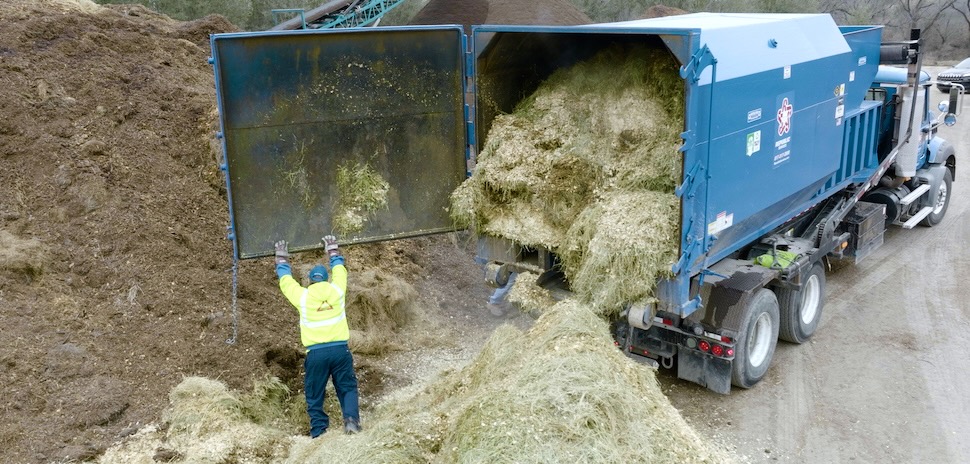
More than two million pounds of herbivore poo is produced at the Dallas Zoo each year. Here a truckload is being delivered to Silver Creek Materials for recycling. [Photo: Taylor McKay for Silver Creek Materials]
Two million pounds each year
“Each year, our herbivorous animals like elephants, giraffes, and okapi produce more than two million pounds of manure,” said Gregg Hudson, Dallas Zoo’s president and CEO, in a statement. “The Dallas Zoo is committed to conservation and sustainability as we work to create a better world for animals, and we’re thrilled to partner with Silver Creek Materials to make an even bigger impact.”
The Dallas Zoo has a goal of diverting 90% of its waste from landfills by 2030 as part of its commitment to sustainability. Animal manure makes up the bulk of that waste by far, and can easily be converted into compost. Silver Creek Materials projects it will accept 100% percent of the zoo’s herbivore manure beginning this year.
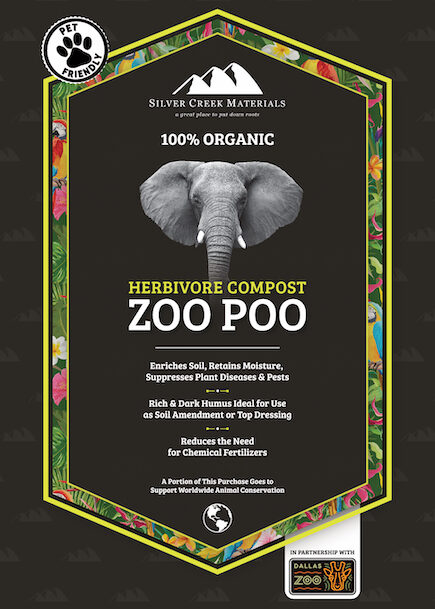
[Image: Silver Creek Materials]
Will be recycled into “Zoo Poo” organic compost
Silver Creek will be recycling all that waste into “Zoo Poo” organic compost. All that animal manure—along with its mixture of hay and bedding material—will create what the partners call “an impeccable compost” for potted plants, growing gardens, landscapes, and soil that needs added nutrients.
According to the zoo, Zoo Poo “doesn’t smell like manure at all,” and increases microbial activity in soil, which is vital for healthy plants and strong root systems.
Zoo Poo will be sold at the Dallas Zoo’s gift shop this month in 4-quart and 1-cubic-foot bags; at local specialty retailers in 1-cubic-foot bags; and at Silver Creek by 1-cubic-foot bag or bulk.
A portion of all sales will go to support the Dallas Zoo’s wildlife conservation program “Protecting the 12.“
“Silver Creek Materials has been committed to recycling for nearly 40 years, and this partnership with the Dallas Zoo deepens that promise to our environment,” Robert Dow, who founded Silver Creek in 1983 and still owns the company today, said in the statement.
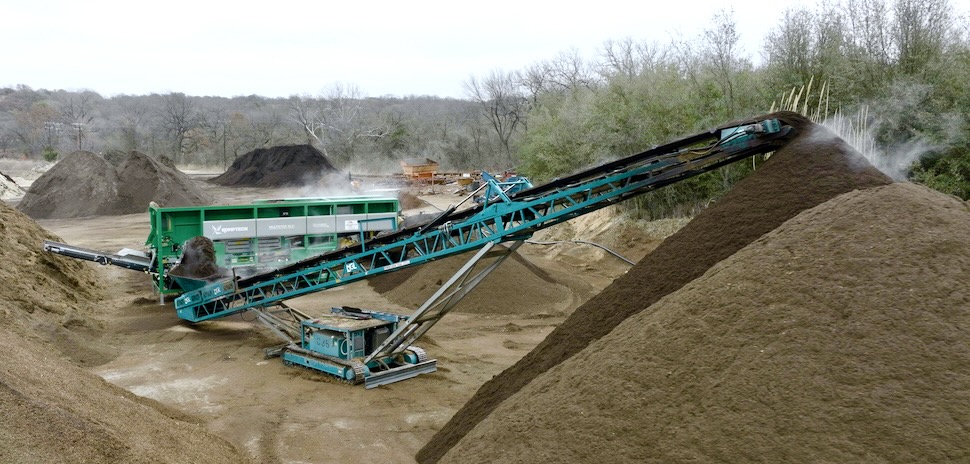
Manure composting at Silver Creek Materials. [Photo: Taylor McKay for Silver Creek Materials]
600-acre Silver Creek operation employs 130
Silver Creek is a 600-acre mining, recycling, composting, and organic materials operation in West Fort Worth. Its large-scale composting facility and quarry are focused on reducing materials going to landfills.
The Dallas Zoo has been trucking herbivore poo to Silver Creek since December 2019. In 2020 it sent nearly 158 tons, and last year it sent over 524 tons—more than one million pounds—accounting for about 50& of the zoo’s total herbivore manure.
The zoo now collects the poo daily and puts it into two separate 35-yard compactors, which are delivered to Silver Creek twice each week.
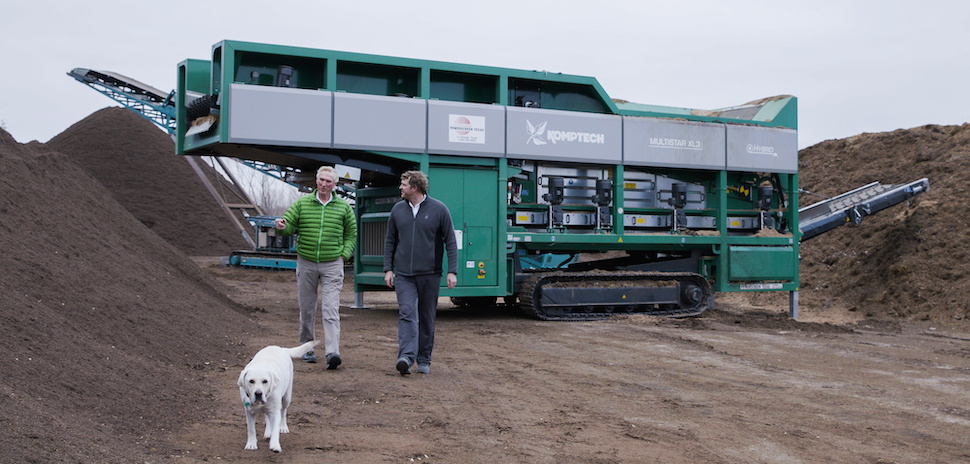
Robert Dow (left) and Marshall Dow (right), board chairman and CEO, respectively, of Silver Creek Materials, with Robert’s dog Rey at the Zoo Poo composting site. [Photo: Taylor McKay for Silver Creek Materials]
And yes, the carbon benefits are worth the drive to Fort Worth
For those who ask, “What about all that fuel exhaust from the poo hauls to Fort Worth?”, don’t worry. The zoo has done the calculations and says the carbon benefits of reduced methane release outweigh the impact of the truck trips. Manure converted to compost is beneficial to both air quality and the environment overall, the zoo adds.
![]()
Get on the list.
Dallas Innovates, every day.
Sign up to keep your eye on what’s new and next in Dallas-Fort Worth, every day.

